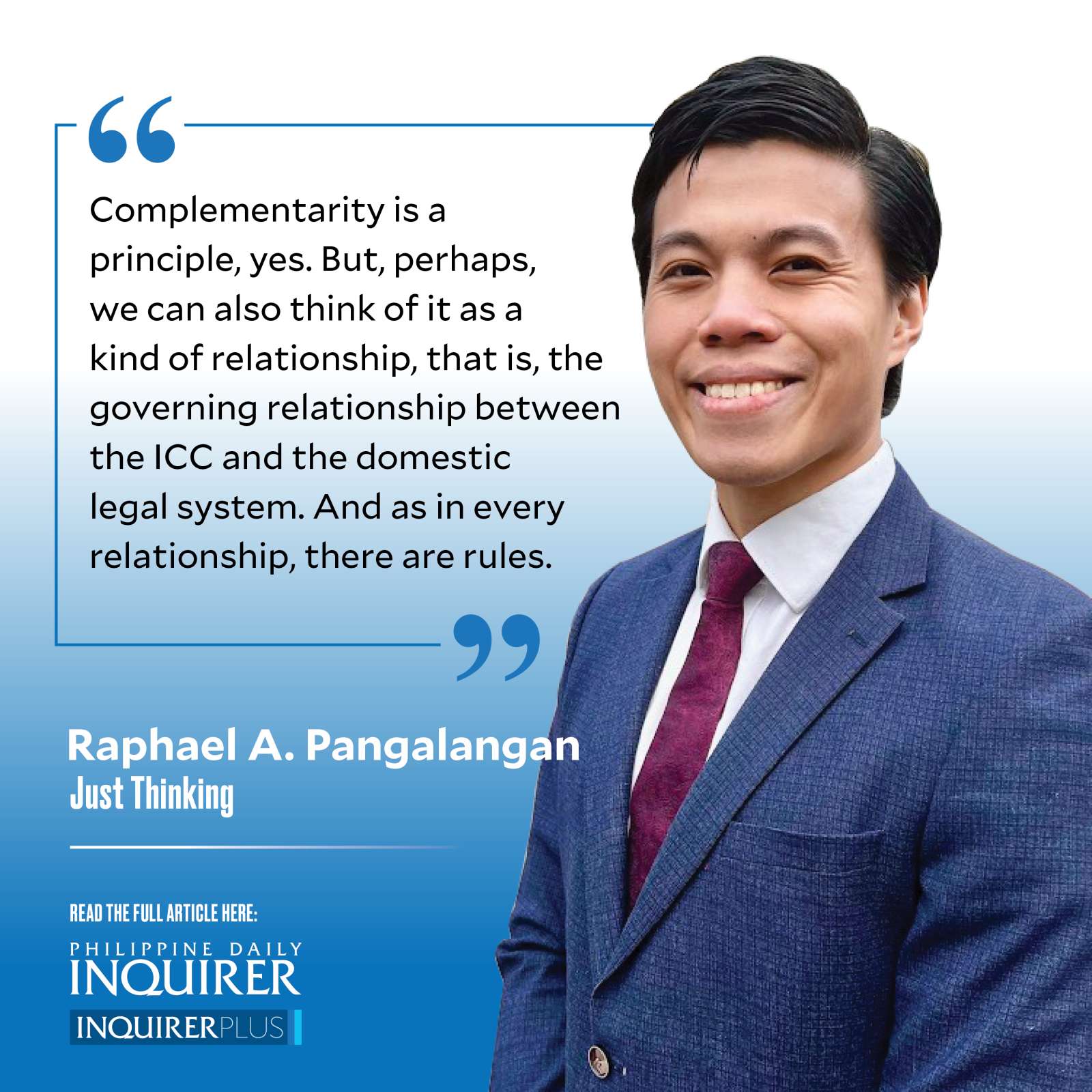September 8 marks an important deadline. Pursuant to the order of Pre-Trial Chamber I (PTC I) of the International Criminal Court (ICC), the Philippine government has until today to submit its observations on the Office of the Prosecutor’s (OTP) request to resume its investigation into the situation in the Philippines.
Ever since then President Rodrigo Duterte withdrew the country from the Rome Statute, Philippine cooperation with the ICC has remained enthralled in the quintessential case of will-they-won’t-they.
Well, not anymore! Last Aug. 24, 2022, Department of Justice Secretary Jesus Crispin “Boying” Remulla confirmed that the Philippine government, in line with the PTC I order, will be submitting a comment on the reopening of the OTP’s probe into the drug war. However, Secretary Remulla was likewise quick to add that the comment will be submitted to the ICC not out of “cooperation,” but out of “comity.”
To this I say: call it what you will, Secretary Remulla. And let the world call a spade a spade.
Secretary Remulla’s invocation of comity was framed as opposition to the ICC, but that’s not to say the court was his only audience. Secretary Remulla was not only speaking to the chancery. Nay, he was playing to the gallery; signaling to popular tastes that he was not leaving their populist leader out to dry.
But no political posturing can conceal how, little by little, the Marcos Jr. administration is slowly deviating from its predecessor’s charted course. Indeed, we won’t have to reach too far back into memory in order to recall Duterte’s sangfroid rebuke of the ICC and all-things-international law. Yet, the Marcos Jr. administration now appears to be showing some willingness to play ball. While that showing may very well indeed be all for show, it nonetheless diverges from the Dutertian cold shoulder approach we witnessed for six long years.
Yet still, deviations aside, too much remains the same. To this day, President Marcos Jr. and his counsels echo the same old arguments invoked by Duterte’s camp. They claim that because the Philippines is “willing and able” to investigate and prosecute extrajudicial killings in the drug war, then the principle of complementarity is not satisfied and, thus, the ICC cannot exercise its jurisdiction.
Volumes upon volumes have been written on the principle of complementarity, yet still the Marcos Jr./Duterte camps get it wrong. They make it sound as if a mere prospect of investigation and prosecution would suffice to rebuff the OTP’s investigation. Alas, they are grossly mistaken. So, allow me to don my professorial hat as I use these closing segments to discuss the doctrine in finer detail.
Complementarity is a principle, yes. But, perhaps, we can also think of it as a kind of relationship, that is, the governing relationship between the ICC and the domestic legal system. And as in every relationship, there are rules.
The Rome Statute codifies these rules in detail. Pursuant to Article 17(1)(a) and (b), a case is inadmissible where it is (i) being investigated or prosecuted domestically or (ii) when it has already been investigated domestically. Notably, while past and present investigations or prosecutions may prevent the ICC from exercising its complementary jurisdiction, future investigations or prosecutions would not. It is for this reason that the Marcos Jr./Duterte administrations’ invocation of being “able and willing” to investigate or prosecute the “war on drugs” in some time yet to come is found wanting of statutory basis. The claim is simply a nonstarter.
But, perhaps, this is where the confusion lies: While the phrase “willing and able” is not ever once mentioned in the Rome Statute, what we find instead is an “unwilling or unable” exception. Pursuant to Article 17, even if there were/are past/present domestic investigations or prosecutions conducted by the Philippine government, the ICC will still be able to exercise its jurisdiction if it is shown that the Philippines was/is “unwilling or unable” to do so genuinely. Notably, the “unwilling or unable” exception is meant to be invoked in order for the ICC to exercise jurisdiction. Not for the Philippine government to avoid it.
Thus the ultimate irony: Both the Marcos Jr. and Duterte administrations’ attempt to parry the ICC investigation by manipulating the language of Article 17. They claim that the Philippine government is “willing and able” to do the job itself. But under the Rome Statute, the very notions of “willingness” or “ability” was never for them to be invoked in the first place. On the contrary, assuming that the domestic system is conducting/has conducted investigations or prosecutions, only then should a party seeking the ICC’s jurisdiction needs to invoke the “unwilling or unable” exception.
In its comment to the ICC, the Marcos Jr. administration would do well to abandon their flawed interpretation of Article 17.
thinkjustly@gmail.com
